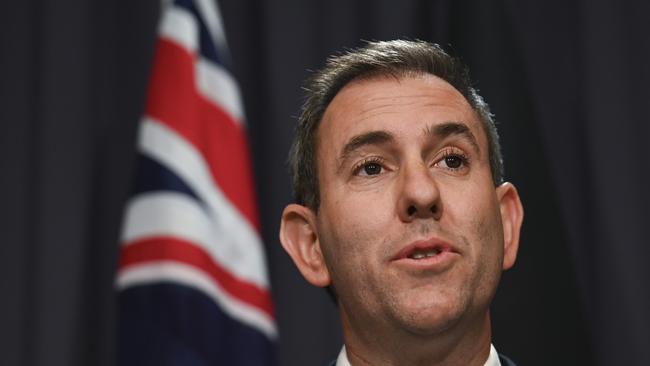IR laws will hurt prosperity as growth grinds to a halt

The slowdown affirms that the Reserve Bank of Australia board made the right decision on Tuesday by holding interest rates steady for a third consecutive month. After his final board meeting, RBA governor Philip Lowe acknowledged the “painful squeeze” being felt by many households.
What is more worrying than the economic slowdown or Dr Chalmers’ prediction of worse to come during the next year is the Albanese government’s second set of workplace relations changes that were introduced to parliament on Monday. If passed by the Senate, the laws would further undermine growth by taking the productive economy in the wrong direction.
Kick-starting productivity, profitability and investment is vital, especially in light of the need for significant economic growth in coming years, highlighted in Treasury’s latest Intergenerational Report. But Labor’s “same job, same pay” laws, introduced on Monday, set the economy up for the reverse effect. The laws will cost employers up to $9bn in extra wages across the next decade, according to the government’s own figures. The Department of Employment and Workplace Relations costings were tabled by Workplace Relations Minister Tony Burke, along with the 284-page Closing Loopholes bill.
Business, for good reason, is stepping up its opposition to the legislation, which it claims forces extreme and interventionist changes on employers. Employers have accused the Albanese government of trying to insert “a union presence into every workplace in Australia” by granting new rights for union delegates that would allow unions to interfere in workplaces with only a few union members, workplace editor Ewin Hannan reports. Business groups say the laws also require employers to provide delegates with paid training leave.
University of Adelaide law professor Andrew Stewart, an expert on the workplace laws, said the right of delegates, including paid training, were contentious as there would need to be only one or two members in a workplace for a union delegate “to have rights in relation to everybody who is a potential member”. Australian Industry Group chief executive Innes Willox said: “This is just a union recruiting tool.”
Dr Chalmers kept up appearances at his press conference on Wednesday, stating he was optimistic about the future and that Australia “was one of the fastest-growing advanced economies through the year to June”. Wages were growing at the fastest rate in a decade, he said. But Dr Chalmers should be worried about the steep decline in labour productivity revealed in the national accounts. GDP per hour worked slumped 2 per cent to be 3.6 per cent lower than a year earlier, economics correspondent Patrick Commins reports. The productivity result is “a shocker”, as Commonwealth Bank senior economist Belinda Allen said, with unit labour costs jumping by 5.8 per cent in the 12 months to June. This is why the government should modify its industrial relations laws as it negotiates their way through parliament.


Jim Chalmers put a brave face on Wednesday’s national accounts, claiming “a steady and a sturdy result in difficult circumstances”. The growth figures were hardly sturdy but they were steady – in so far as stagnation is steady. Real gross domestic product expanded by only 0.4 per cent in the three months to June, the Australian Bureau of Statistics data showed, unchanged from the March quarter. After accounting for a resurgence of migration across the past year, real GDP per capita dropped by 0.3 per cent – the second consecutive quarterly decline that reflected falling living standards for many households, even as the overall economy grew. The Treasurer still expects the economy to “slow considerably over the next year” as hundreds of thousands of mortgage holders shift off ultra-low fixed interest rates and the global outlook deteriorates as China’s economy stutters.